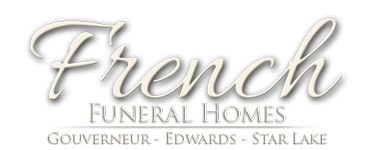Frequently Asked Questions
What is a funeral?
A funeral is a ceremony for a deceased person prior to burial or cremation. A funeral gives the opportunity for family and friends of the deceased to gather and mourn the passing of their loved one, to share cherished memories and celebrate their life. A funeral is a vital first step to help the bereaved heal after the loss of someone special.
What type of service should I have?
If no pre-arrangements have been made, the type of service is entirely up to you. Services are usually held at a funeral home or a place of worship. There is a wealth of different services, ranging from a traditional religious or military service to something a little more non-traditional. Our funeral directors are more than happy to work with you to figure out what would be the most appropriate.
Can I personalize a funeral?
Of course you can, in fact more and more people are opting for a more non-traditional personalized service. There is no right or wrong way to celebrate somebody’s life. There are many unique ways to celebrate life, let the funeral director know exactly what your desires are and they will honor your wishes.
Do we need to have an obituary notice and what is included in one?
It is highly recommended to have an obituary notice that’s either placed in a local newspaper, or placed online. An obituary lets the public know that a death has occurred, and gives them information about the service. Obituaries generally include the deceased’s full name, age, city and date of birth and the city they were living in when they died. It also includes the name of the deceased’s spouse, along with the names of anyone else significant in their lives, such as parents, children or grandchildren. Space may be limited in a newspaper obituary, but you may include a little blurb on the life and legacy of the deceased. An online obituary or memorial website offers you the chance to add a lot more about the deceased.
Who are funeral directors and what do they do?
Funeral directors are in charge of all the logistics following a death. They complete all the necessary paperwork, make arrangements for the transportation of the body, and put into action the choices made by the family in regards to the funeral service and the final resting place of the body. Beyond the logistics, funeral directors are there to provide moral support and guidance for someone coping with death.
What happens if the death occurs in the middle of the night or on the weekend?
We are here to help, funeral directors are available 24 hours a day, 7 days a week, and 365 days a year.
What if a death occurs away from my home town?
We are here to help, we can arrange to have the remains transported home from anywhere in the world. We will assume responsibility and make the proper arrangements to have the remains return to the community.
What is embalming and what purpose does it serve?
Embalming sanitizes and preserves the body; it also slows down the decomposition process and enhances the appearance of the body damaged by traumatic death or illness. Embalming gives time to the family of the deceased to arrange a service, and allows the family the option of having an open-casket viewing.
Do I need to have an embalming?
No. In fact some religions forbid embalming. However, some countries require embalming by law in order for remains to leave or enter the country. If it is not against your religious custom, embalming is recommended, especially if there is an extended gap between death and burial or cremation.
How much does a funeral cost?
The cost of the funeral varies depending on the wishes you have. The average cost of a funeral is between $5,000-$7,000, however, the most basic of services can cost as little as $1000. The cost includes all professional services including transportation, embalming and other preparations, the use of a facility for the ceremony, and the purchase of a casket or urn.
Why are funerals so expensive?
Funerals are labor intensive and require a lot of work from a lot of people. The cost of a funeral goes beyond merchandise such as caskets, it includes the services of a funeral director in making the necessary arrangements, filling out forms, and dealing with all the other people involved in the death (doctors, lawyers, insurance companies). Funeral directors work an average of 40 hours per funeral. The cost of operating a funeral home is factored into the cost as well. Funeral homes are a 24 hour operation, with extensive facilities that need to be maintained and secured.
What do I do if I am not satisfied with the way a funeral was handled?
Funeral Services in the United States is regulated by the Federal Trade Commission, they can be reached by telephone at 1-877-FTC-HELP (382-4357) or you can fill out a form online at www.ftc.gov. In Canada, funeral services are regulated provincially and this information can be found on the Canadian Consumer Information website at www.consumerinformation.ca
What should I be prepared to provide when going to the funeral home to make funeral arrangements?
You should be sure to have the following information ready when you are making funeral arrangements:
- Decedent’s name
- Decedent’s social security number
- Decedent’s date and place of birth
- Address of the deceased
- Highest level of education completed
- Decedent’s occupation
- Decedent’s father’s and mother’s name (including maiden name)
- We will need your name, contact information, and relation to the deceased
What should I do if the death occurs in the middle of the night, on the weekend or out of town?
You can call us at any time day or night, 24/7. We are always prepared to be there when you need us.
How can I make sure my funeral arrangements are carried out according to my wishes?
The best way to ensure that your funeral arrangements are carries out according to your wishes is to preplan your funeral. Preplanning takes pressure off of your loved ones at a difficult time and ensures that your services will be very personal to you without anyone having to guess. If you would like to discuss preplanning, please contact us to schedule an appointment with a funeral director.
Is there a right or best way to have a funeral?
There is no “right” way to have a funeral. Every person is unique and any service should reflect that person and the life that they lived. In recent years people are finding more truly different and very personal ways to celebrate the life of someone they have lost. Talk with your funeral director about your loved one and what was special about them. Together you can plan a service that will celebrate the life of someone truly special.
What do I say to people at the funeral?
Each situation is different, but whether you call, send a card or flowers, or visit, the important thing is to make a gesture that lets the family know you’re thinking of them and share their sorrow. This website has many good tips to help you feel more comfortable about what may be helpful to say to someone at a funeral: www.funeralwise.com/etiquette/guide.
Should a child attend a funeral?
You know your child best, so ultimately you, and if your child if s/he is old enough, must be the ones to make that decision. Keeping that in mind, a funeral is something your child will likely remember their whole lives. Choosing to bring your child without some education and discussion beforehand can leave a child confused or even fearful. Choosing not to bring your child can sometimes lead to regret later in life. Even children can find comfort in saying goodbye. If your child is old enough to have a conversation, talk to them about what will be happening at the service. Give them the opportunity to help make this choice. Death is something we don’t have control over and having control over whether or not to attend a service can sometimes be very helpful. Use your judgement and know that you know your child and what his or her limits may be.
Can I still have a funeral service with the body present if I choose cremation?
Yes. It is not uncommon for a funeral service to be held with the body present before being cremated. You can discuss the different options available with your funeral director for more information

